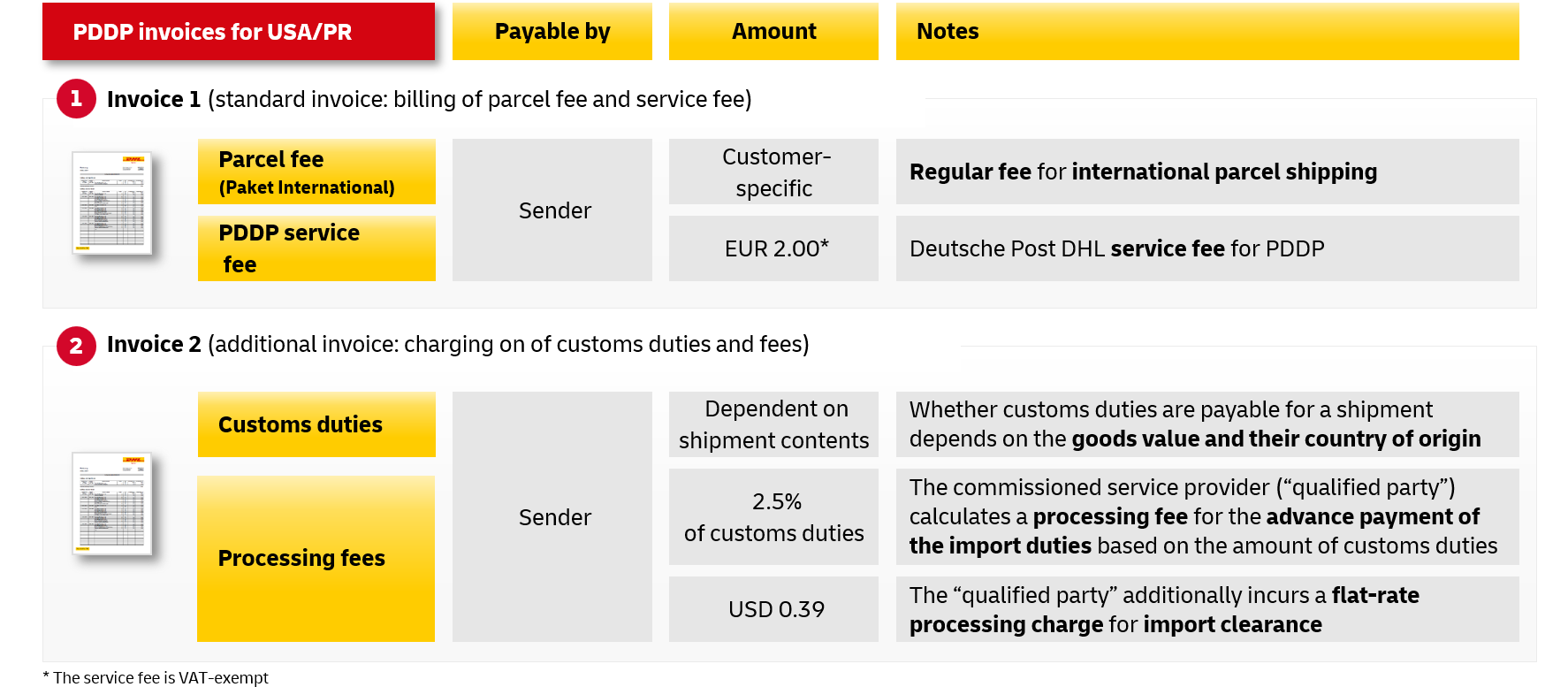On August 29, 2025, a new US customs regulation took effect: the executive order "Suspending Duty-Free De Minimis Treatment for all Countries." This led to restrictions worldwide on postal goods shipping to the United States – including at Deutsche Post and DHL Paket – and to the suspension of the existing duty-free limit for all commercial imports to the United States.
What shipping restrictions were in place?
- Effective August 26, 2025, business customers were temporarily unable to ship parcels and Warenpost items to the United States.
- This was due to new requirements by the US authorities, particularly pertaining to the collection of customs duties, the provision of additional data and the transmission of data to US Customs and Border Protection (CBP).
What was still possible?
- Private individuals to private individuals: it was and still is possible to ship gifts with a value of up to USD 100, however, with intensified controls. Further information is available at the US country site.
- Documents in letters: no changes.
- DHL Express: shipping to the United States remains possible for private and business customers, using the applicable customs duty rates.
International effects
The changes pertained to all postal and parcel service providers worldwide. Many providers suspended shipping to the United States. The European postal association PostEurop also published information about coordinated measures with the national authorities.
